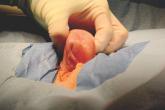On Sept. 24, the Food and Drug Administration’s Obstetrics and Gynecology Devices Panel will meet in Silver Spring, Md., to discuss the future of Bayer’s Essure permanent female sterilization coil.
FDA officials have asked the 19-member advisory panel to evaluate the currently available scientific data on the safety and effectiveness of the Essure system and make recommendations on appropriate use, product labeling, and the potential need for additional postmarket clinical studies.
Since Essure’s approval in 2002, the FDA has received more than 5,000 complaints about Essure. Most concern chronic pain, perforation, dyspareunia, device migration, menstrual problems, and possible allergic reactions to the nickel in Essure, but more than 100 adverse symptoms have been reported to the agency, according to newly posted meeting materials.
The complaints have been filed mostly in the past 2 years by patients who have organized online to share their stories and lobby to have Essure taken off the market; some are involved in legal action against Bayer. Meanwhile, Bayer maintains that, for most of the approximately 750,000 women who have received Essure, the device is safe and effective.
Advisory panel members will have their work cut out for them as they sort through the issues. The FDA has released a new 89-page review of Essure, and Bayer has submitted its own lengthy review document. Testimony is expected from Bayer, FDA reviewers, patients, and others. The meeting is scheduled to run almost 12 hours, from 8 a.m. to 7:30 p.m. Eastern time, at the agency’s White Oak Campus in Silver Spring, Md., and will be broadcast live online.
FDA noted in its review that it has been monitoring social media with automated software that scours Twitter, Facebook, patient forums, and other websites for “posts with resemblance to adverse events” or “Proto-AEs.” The program picked up 350,000 references to Essure between September 2013 and July 2015 and classified more than 20,000 as Proto-AEs, mostly related to pain, hysterectomy, malaise, pregnancy, and device removal. The social media data, however, are preliminary since the FDA has yet to remove duplications and retweets.
aotto@frontlinemedcom.com
